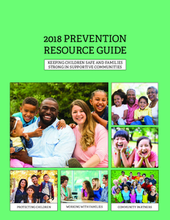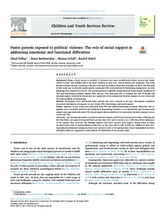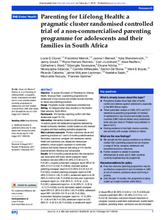Displaying 431 - 440 of 947
The 2018 Prevention Resource Guide was designed to support service providers as they work with families to promote child well-being and prevent child maltreatment.
This paper presents the results of a qualitative study based on in‐depth interviews and participant observation in 3 Norwegian family centres.
This video from Rise Magazine features tips from parents who have had their children placed in foster care in the U.S. to other parents in the same situation on how to handle visits with their children in the care system.
For many social workers, participatory practice may seem an unachievable goal, particularly in the field of child protection. This paper discusses a significant programme of change in one London local authority, as part of which the authors undertook 110 observations of practice and provided more than eighty follow-up coaching sessions for workers.
The first goal of this study was to describe posttraumatic symptoms (PTS) and problems in functioning among foster parents following their exposure to the war.
This is a prospective study of 28 family mentors providing peer recovery support services to 783 families with child maltreatment and parental substance use disorders (SUD) over 8 years in a family-centered integrated program with SUD treatment providers.
Record rise in number of care applications has prompted England's most senior family court judge to warn of a looming “crisis”.
The current qualitative study examines the lived experiences of the women and children in the Mothers Unit from the subjective perspective of the women currently or previously involved in the programme and of the professionals working with them.
The aim of this study was to assess the impact of ‘Parenting for Lifelong Health: Sinovuyo Teen’, a parenting programme for adolescents in low-income and middle-income countries, on abuse and parenting practices.
This study uses data from the recent Modern Adoptive Families survey to understand parent perspectives on their preparation for adoption.



